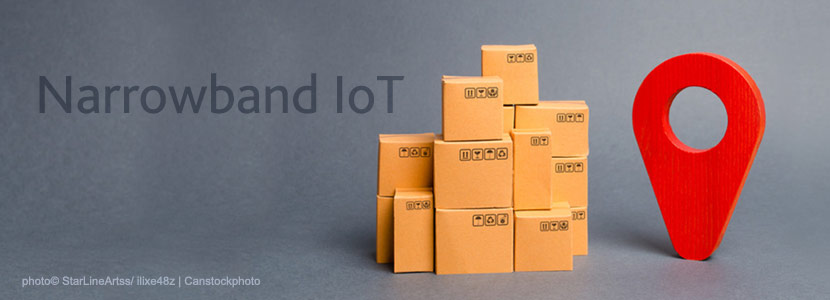
Deutsche Telekom has announced roaming agreements for narrowband IoT with Swisscom, Teli Company and Vodafone.
Low consumption and low costs are among the advantages of radio technology. Narrowband IoT (NB-IoT) can therefore be used for tracking containers or even a single package as long as the amount of data to be sent remains small.
The problem so far, however, has been that telecommunications providers could only offer NB-IoT in their own markets. So far, there have been few cooperations for roaming in this low-frequency range of 180 kilohertz. Now Deutsche Telekom has announced that it has signed contracts with Swisscom, Delia Company and Vodafone.
Roaming available at Telekom in 18 European countries
According to the telecommunications manufacturer NB-IoT roaming will soon be available in 18 European countries. These include Deutsche Telekom’s networks in Germany, the Netherlands, Austria, the Czech Republic, Slovakia, Hungary, Greece, Poland and Croatia. Furthermore, the Swisscom networks in Switzerland and Liechtenstein, as well as Telia Company in Denmark, Finland, Norway and Sweden. Vodafone’s networks in Spain, Italy, Germany, the Netherlands and the United Kingdom.
Important applications for transport and logistics possible
For transport and logistics companies that are traveling in these countries, this creates new opportunities for the transmission of important data such as the position or, to a small extent, temperatures. With narrowband IoT, however, it must always be ensured that the downlink peak rates are very low in the LTE categories NB1 and NB2 of the 3rd Generation Partnership Project (3GPP). It is 26 kbit/s for NB1 and 127 kbit/s for NB2. In addition, the energy consumption should be kept as low as possible for a long shelf life of the devices. A continuous transmission of the geodata would then be counterproductive. However, if you only need an update in your supply chain at important points, you can also use NB-IoT. This market will definitely continue to grow.
Two years ago, Deutsche Telekom and the Vodafone Group successfully completed raoming tests. At that time, the two manufacturers tested important energy-saving functions such as Power Saving Mode (PSM), Long Periodic Tracking Area Update (TAU) and various measurements of throughput values and round trip time (RTT). One of the results are the contracts that have now been signed.
